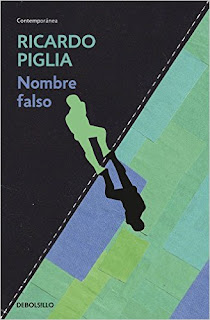por María Luisa Bombal
Argentina, 1938
Ana María, como la narradora en La última niebla de Bombal, es una esposa infeliz. "Oh, la tortura del primer amor, de la primera desilusión! ¡Cuando se lucha con el pasado, en lugar de olvidarlo!" ella grita -en un modo de hablar- dentro de un monólogo interior telenovelesco (107). A diferencia de la otra narradora, Ana María, "la amortajada" del título, está muerta. Con la ayuda de otro/a narrador/a en tercera persona, la novelita sigue los pensamientos y remordimientos del personaje mientras que ella espera el cortejo fúnebre que la llevará a la cripta familiar. Qué gótico, ¿no? Además del truco con la narradora muerta, Bombal trabaja duro para mantener el interés del lector. Aunque el relato tiene un lado "filosófico" (pregunta: "¿Era preciso morir para saber ciertas cosas?" [116]), lo que me gustaba más era el ambiente inquietante de una obra que habla de "las dulces culebras" de la muerte (160) y versa sobre la tumba con tal extrañeza extravagante y/o feminista como esto (166):
Hay pobres mujeres enterradas, perdidas en cementerios inmensos como ciudades -y horror- hasta con calles asfaltadas. Y en los lechos de ciertos ríos de aguas negras las hay suicidas que las corrientes incesantemente golpean, roen, desfiguran y golpean. Y hay niñas, recién sepultas, a quienes deudos inquietos por encontrar, a su vez, espacio libre, en una cripta estrecha y sombría, reducen y reducen deseosos casi hasta de borrarlas del mundo de los huesos. Y hay también jóvenes adúlteras que imprudentes citas atraen a barrios apartados y que un anónimo hace sorprender y recostar de un balazo sobre el pecho del amante, y cuyos cuerpos, profanados por las autopsias, se abandonan, días y días, a la infamia de la morgue.
¡Oh, Dios mío, insensatos hay que dicen que una vez muertos no debe preocuparnos nuestro cuerpo!
La amortajada, publicada por primera vez en 1938 por Editorial Sur en Buenos Aires, se puede encontrar en las páginas 96-176 de las Obras completas de la chilena Bombal (1910-1980, arriba) compilada por Lucía Guerra (Santiago de Chile: Editorial André Bello, 1996).
















